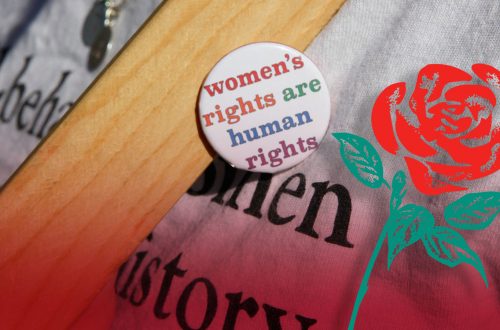The latest film version of Little Women directed by Greta Gerwig is a hit which has been nominated for six Oscars. A film with so many women in the main roles is rare, and here are four individual March sisters, their saintly mother and their curmudgeonly aunt. I liked it well enough. The acting is good, it is calendar pretty and I could see the point of the framing device, with the time scheme changed so it is adult Jo, a grown-up writer looking back her girlhood. Of course I have read the books. Others were puzzled and got lost with a character one minute at a debutante dance, the next married and sad, the next skipping about. Also, the scenes were short and choppy so that events like Amy nearly drowning under the ice weren’t built up properly, and it was busy, with the girls constantly hugging or prodding each other. That is meant to be a sisterly dynamic but the determined exuberance got very wearying.
Little Women has been loved by little and large women ever since it was published in 1868. Women writers love Jo, turning out stories, plays and poems and uninterested in the feminine world. Simone de Beauvoir loved the book because Alcott was on Jo’s side, and Jo was an intellectual and destined to have an unusual life (self-identification there!). Jo sits in trees reading books, she detests the “ladylike” cage and she has a wonderful friendship with a boy her own age, Laurie. The tomboyish Jo, the future writer, and sensitive Laurie, the future musician, are a terrific pair. Their friendship is joyful – skating together; running together; laughing, plotting, confiding – and is far better than any love story.
De Beauvoir:-
the relationship between Jo and Laurie touched me to the heart. Later, I had no doubt, they would marry one another; so it was possible for maturity to bring the promises made in childhood to fruition instead of denying them; the thought filled me with renewed hope.
(From Memoirs of a Dutiful Daughter)
Like most of its readers, de Beauvoir was disappointed that Jo and Laurie did not marry in the end. The magical pair grow up, he proposes marriage and she turns him down because she is not in love with him. Laurie fails as a musician and to the consternation and disappointment and even fury of many readers, he marries Jo’s younger sister, the insufferable brat, Amy, who had once burned her sister’s manuscript in a spoiled child’s tantrum.
Ursula Le Guin thought Alcott treated this appalling crime against a writer rather lightly.
We first meet Jo as a writer when sister Amy vengefully burns her manuscript, ‘the loving work of several years. It seemed a small loss to others, but to Jo it was a dreadful calamity’. How could a book, a several years’ work, be ‘a small loss’ to anyone? That horrified me. How could they ask Jo to forgive Amy? At least she nearly drowns her in a frozen lake before forgiving her.
(The Fisherwoman’s Story)
In the USA Little Women is one volume. In the UK Little Women splits in two, the second book, Good Wives, following the sisters’ story 3 years on. I first read Little Women when I was about 12 and assumed that Jo would marry Laurie. My own sister plot-spoiled saying no, he married Amy. I was surprised – didn’t the heroine always marry the hero?
Amy has never been forgiven. She has committed terrible sins – of being a snob, a social climber, a failed artist (many women writers regard being a Creative as the only satisfactory destiny) and for marrying the ideal chap, the handsome and sensitive (and rich!) one, who adores you however untidy and vociferous you are, that we all deserve.
Gerwig tries to round out Amy in the 2019 film version, giving her an unlikely speech. Amy does mean to make a mercenary marriage* but no young woman of her time would have been so explicit and aware.
And as a woman, there’s no way for me to make my own money. Not enough to earn a living or to support my family, and if I had my own money, which I don’t, that money would belong to my husband the moment we got married. And if we had children, they would be his, not mine. They would be his property, so don’t sit there and tell me that marriage isn’t an economic proposition, because it is. It may not be for you, but it most certainly is for me.
That’s making Amy a modern woman for a 2019 audience and it jars. (Here’s a clever and fun video of various interpretations of Little Women reflecting the attitudes of the times.)
Hadley Freeman, hat-pin sharp as usual, didn’t much care for the film.
… imposing modern attitudes on canonical characters in the belief they must be relatable is just lazy. This happens a lot with the Bennet sisters in Pride And Prejudice, and here with the March sisters. A good literary adaptation brings us to the characters, not the other way round; in Emma Thompson’s Sense And Sensibility, Thompson and Kate Winslet don’t wang on about “the marriage economy”, as Gerwig’s Little Women do. Instead, we see how we would have thought in the 19th century. Because it’s one thing to fantasise that we are Jo, and quite another to fantasise that Jo is us. This tendency to overrelate to any fictional character, whether it’s Jo or Fleabag, is less about art and more about narcissism. We don’t have to make everything about ourselves.
I myself eventually thought that the Amy/Laurie marriage made sense. Laurie loves the whole March family, who warmed up his chilly and lonely life when he was a lad. Laurie is a musician manqué, Amy an artist ditto, (she is not a “genius”, she declares), they are a handsome, well-mannered pair who shine in high society and resolve that they will share their wealth as philanthropists and arts patrons – a perfectly decent ambition. Jo tells Laurie when she turns him down that he would eventually hate her graceless manners, her Bohemianism, her eccentricity, her scribbling in attics, and she’s quite right.
Alcott takes some pains in Good Wives to show Amy maturing and gaining depth. I always enjoyed the Amy parts – her humiliations at the hands of richer girls, her entry into high society via her beauty, charm and talent, her glamorous European travels and her refurbishing her clothes and prinking to shine at a ball. I was sorry that the film didn’t include the proposal scene, when Amy and Laurie agree that they will continuing rowing in the same boat. (I’m not the only Amyist).
Meanwhile the Jo parts were much duller. She allows herself to be moralised at by tedious Professor Bhaer for writing pot boilers and for taking an interest in anti-Christian intellectual society. Gerwig got round the awfulness of Bhaer by turning him from an ugly German professor into a gorgeous French critic to be Jo’s unconvincing love interest. She does this in a “meta” way. Jo is the author of the story and her publisher is demanding a happy ending, so Gerwig makes this lovely chap someone Jo has conjured up for the conventional reading public. That’s a slight joke on Gerwig herself when you come to think of it, as she has conjured up an anachronistic Amy to please and flatter the equally conventional film-going public.
*Amy is accepting the attentions of a rich Englishman – how would his family have regarded him marrying a penniless American? American girls were only acceptable wives to the Upper Ten Thousand if they were rich. .



